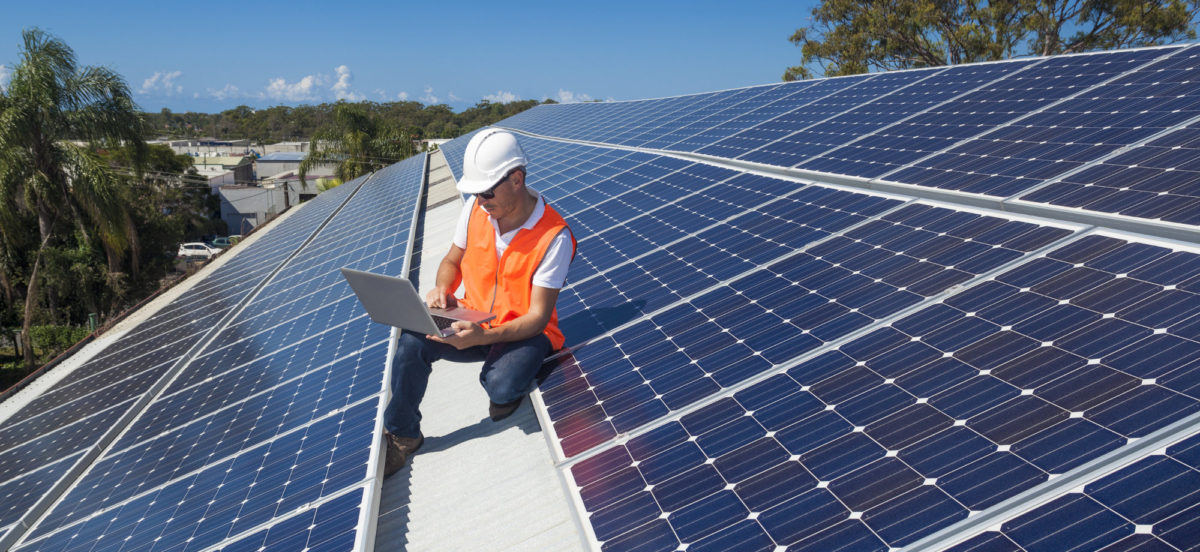Australia’s rooftop solar sector is set to come under intense scrutiny after Federal Minister for Energy and Emissions Reduction Angus Taylor ordered an examination of the regulatory framework and practices of the industry. While the full scope of the review is yet to be finalized in the coming days, the minister told the ABC the inquiry would be carried out by the Clean Energy Regulator (CER).
“I have asked the Clean Energy Regulator, with the support of my department, to investigate the issues raised in a range of recent reports focused on the integrity of the rooftop solar sector,” Taylor said. “Australians are world leaders in the uptake of rooftop PV, shown by the uninterrupted strong growth in rooftop solar. Protecting the integrity of a system that has such a wide-ranging impact on Australian households and businesses is a top priority.”
According to the ABC report, it appears the inquiry will look into a wide range of issues such as unethical sales and marketing techniques, incorrect claiming of small-scale technology certificates (STC), installation standards, accreditation of solar retailers by the industry’s peak body, the Clean Energy Council (CEC), and defective installations. The inquiry is expected to take around two months, the report said.
Measures to protect consumers and the industry
The CER, which oversees the Small-scale Renewable Energy Scheme (SRES) that provides Australia’s national solar subsidy for sub-100kW systems, has been already acting to curb non-compliance and fraud under the scheme, including the use of dodgy equipment. As of recently, it has widened its investigations into the misuse of accredited installer details and reported a lower rate of errors where Solar Panel Validation (SPV) is used.
Since its launch in 2018, the SPV program designed to protect Australian consumers by making the identification of solar products easier has been growing in popularity. As the CER recently announced, over 50% of STC claims are now submitted using SPV.
At the time of the program launch, the Australian Competition and Consumer Commission (ACCC) was actively campaigning to abolish the SRES scheme by 2021, instead of 2030, as envisaged by the current policy, saying that the program is putting upward pressure on electricity bills. Dodgy installations were acting as a tailwind to the movement to scrap the SRES.
In addition to SVP, a number of other initiatives have been launched to ensure the integrity of the industry. Today, consumers are urged to choose an Approved Solar Retailer and make sure the installer who completes the work is accredited by the CEC. All accredited installers have a date stamped digital ID card that they can show on their phone.
As a result of solar safety measures introduced to protect both installers and consumers, the number of Australian rooftop solar systems that can be labeled as unsafe or potentially unsafe has drastically declined. The latest CER report assessing the safety risks associated with rooftop PV has found a significant decline in the number of sub-standard solar systems no greater than 100 kW, with just 1.7% of inspections of 2018 installations classified as unsafe (0.7%) or potentially unsafe (1%). The ABC report has, however, referred to the 2018 stats.
Political intervention
As it confirmed media reports on Tuesday regarding the inquiry to be undertaken by the Federal Government, the CEC said the Australian solar industry is heavily regulated and scrutinized. While it welcomed “any genuine review”, the CEC warned against any political intervention that may harm the industry.
“The Clean Energy Council welcomes any genuine review of the regulations and oversight of the Australian solar industry, particularly if it leads to continuous improvement and harmonisation of the way the solar industry is regulated, delivering a more robust sector and a better outcome for customers,” CEC chief Kane Thornton said. “However, the Clean Energy Council would be deeply concerned if this became politicized as was the case in 2015 when the Abbott Government initiated a review of the solar industry as part of its campaign to reduce support for renewable energy.”
Together with a range of regulatory bodies, the CEC is working to lift the bar on safety, quality and business operations. It has been driving tougher standards for solar panels and inverters, increased training and support for installers and clamping down on poor behavior from retailers. “We are confident that this means the vast majority of solar customers get a good quality solar system that is safely installed,” Thorton said.
“As the industry continues to grow and evolve, these regulatory approaches must keep up with consumer expectations, emerging business models and best practice regulation to ensure industry integrity and consumer protections,” Thorton said. “The Clean Energy Council looks forward to participating in this review and highlighting the opportunity for governments to harmonise and improve their approach to electrical safety, electrical licensing and auditing, consumer affairs and oversight of competition and marketing claims across the industry.”
This content is protected by copyright and may not be reused. If you want to cooperate with us and would like to reuse some of our content, please contact: editors@pv-magazine.com.









By submitting this form you agree to pv magazine using your data for the purposes of publishing your comment.
Your personal data will only be disclosed or otherwise transmitted to third parties for the purposes of spam filtering or if this is necessary for technical maintenance of the website. Any other transfer to third parties will not take place unless this is justified on the basis of applicable data protection regulations or if pv magazine is legally obliged to do so.
You may revoke this consent at any time with effect for the future, in which case your personal data will be deleted immediately. Otherwise, your data will be deleted if pv magazine has processed your request or the purpose of data storage is fulfilled.
Further information on data privacy can be found in our Data Protection Policy.